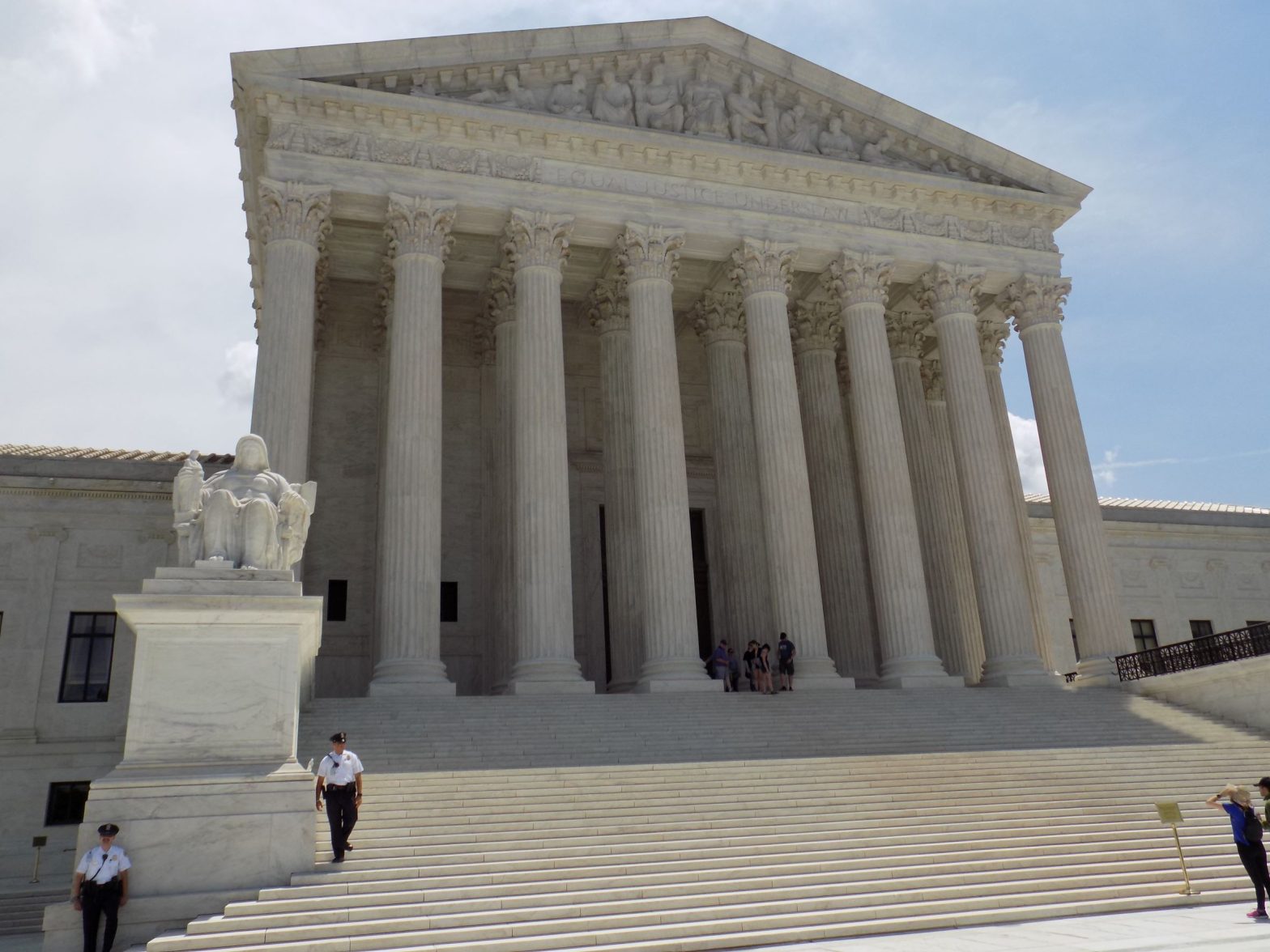Internet Companies Tell Supreme Court They Should Not Be Liable for Terrorism

WASHINGTON — The U.S. Supreme Court showed minimal interest Tuesday in reducing the legal protections for internet companies over inflammatory information their users post online.
The court’s greater concern was unleashing a flood of lawsuits that could drive technology companies out of business if they eliminate their liability exemptions under Section 230 of the Telecommunications Act of 1996.
“Lawsuits will be nonstop,” Justice Brett Kavanaugh said during oral arguments.
He was responding to arguments from an attorney representing the family of 23-year-old American student Nohemi Gonzalez, who was killed during ISIS attacks in Paris, France, in November 2015. The series of terrorist attacks killed 130 people.
Her family sued YouTube and its parent company Google, saying the algorithms they use for their recommender system contributed to the attacks. The recommender systems tailor content based on profiles of users and their history of internet searches.
The Gonzalez family argued YouTube led users to ISIS recruitment videos that radicalized Muslim sympathizers and helped to compel the Paris attack.
Google defended by invoking Section 230’s immunity from liability for content published on an internet service provider’s platform by third-party users.
The Gonzalez case is one of two cases the Supreme Court is hearing this week that accuse internet giants of failing to prevent user postings that contribute to crime and terrorism. Together, the cases could transform the control of Big Tech companies over information posted on their websites, according to legal analysts.
With worldwide users, Google says it is impractical to police all of the content posted on YouTube and other social media platforms.
Google won in federal court at both the trial level and on appeal.
Liberal and conservative Supreme Court justices said Tuesday that the consequences of reducing legal protections for internet companies could be more damaging than holding them liable for irresponsible postings.
Chief Justice John Roberts said that if the same algorithms direct users to a wide variety of interests, such as consumer products, it would be difficult to prove the companies were inciting terrorism.
“Then it might be harder for you to say that there’s selection involved for which you can be held responsible,” Roberts said.
Justice Elena Kagan told the plaintiffs’ attorney, “You are creating a world of lawsuits. Really, anytime you have content, you also have these presentational and prioritization choices that can be subject to suit.”
The Gonzalez family argued in its brief to the Supreme Court that regardless of whether the internet recommendations are done automatically by algorithms, Section 230 was never intended to protect the kind of content that encourages terrorism.
“Interactive computer services constantly direct such recommendations, in one form or another, at virtually every adult and child in the United States who uses social media,” the Gonzalez petition says.
The related case the Supreme Court is hearing Wednesday is Twitter v. Taamneh.
The case considers whether social media platforms could be liable under the Antiterrorism and Effective Death Penalty Act of 1996 for postings that encourage terrorism.
The lawsuit was filed by the family of Jordanian citizen Nawras Alassaf, who died in a 2017 ISIS attack in Istanbul, Turkey. The Alassaf family sued Twitter, Google and Facebook.
Twitter argued that holding it liable would expand the scope of the Antiterrorism Act far beyond what Congress intended.
Twitter, Google and Facebook lost at the trial level. On appeal to the Supreme Court, Twitter argued that holding the company liable would mean the act was a “statute of impossible breadth.”
It would be the equivalent of making banks and rental car companies liable if terrorists used their services to assist in an attack, Twitter’s attorneys argued.
The case is Gonzalez et al. v. Google in the Supreme Court of the United States.
You can reach us at [email protected] and follow us on Facebook and Twitter























